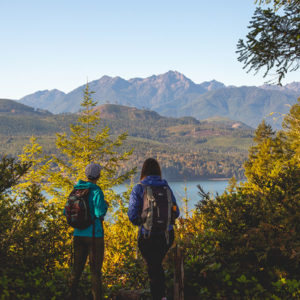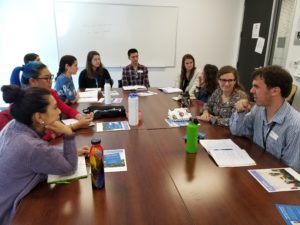Power to the People: Climate Ambassadors
In order to move more communities to climate action, citizens have been showing up (virtually at this time) at their city council and state legislature meetings. Around the country, cities have been putting climate solutions on the ballot in response to demands from their citizens. On November 3 an overwhelming majority of these initiatives passed, including $3.7 billion in land conservation – you can read about them on the Trust for Public Land site here , and more on the Denver climate change sales tax here – thanks to an increasingly informed and engaged citizenry.

At ecoAmerica, we have been training community leaders on ways to engage their communities in climate action through our Climate Ambassadors program. We help people connect the dots between the changing climate, their health, their property values, and their increasing exposure to extreme weather events. We explain climate solutions that are available, with current information on how to take personal and collective action to reduce Greenhouse Gas emissions and mitigate climate impacts, and we provide research-tested tips for communicating effectively with policy makers. Hundreds of our climate ambassadors are keeping busy around the country, talking to legislators, tweeting about climate issues, and engaging on climate change solutions.
Climate ambassadors in Charlotte helped move their local transit system to switch from purchasing new diesel buses to choosing hybrid and all-electric buses instead. Our climate ambassadors in Southwest Florida are engaging with their local leaders on a new Regional Resiliency Compact, where 8 of 13 jurisdictions have already joined. And our ambassadors in Utah helped support their recently signed Climate and Clean Air Compact.

Ambassadors post on social media about climate change. They seek out groups to speak to, and write to council members and legislators in support of clean energy and other climate action. One of our ambassadors, Ed Maxwell in Southwest Florida, even started his own blog on climate and sustainability, and he already has over 100 readers. His piece from last month was about plastic pollution: “What is a nurdle and why should we care? Nurdles, quite simply, are the building blocks of everything plastic… Unfortunately, the nurdles that never get into production are lost or discarded as waste or dumped overboard from ships delivering them to countries around the world.” Read the full blog here.
We invite you to join us in an upcoming training. Whether or not you plan to give a structured talk to groups about climate solutions, your voice is important and it is easy to learn about all the great actions that can help confront the climate crisis. With our information, you will know what solutions are available and applicable now, and be able to advocate with local, state and federal officials more effectively. The more voters know and share about impacts and solutions, the more policy makers will act.
Our local trainings are free, three hours long, and include input from local experts. For those readers who live in North Carolina, we have an upcoming climate ambassador training on January 12 and 13 (90 minutes each day), 2021. It will feature an overview of climate change and impacts in North Carolina, as well as solutions at the local, state and national levels that citizens can support. Join us (you do not have to be a resident of NC to attend)! Registration is available here, and you will receive a Zoom link once registered. Together we can make 2021 the year of the climate!
